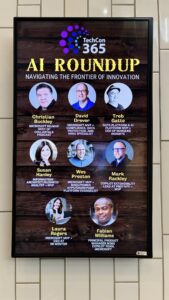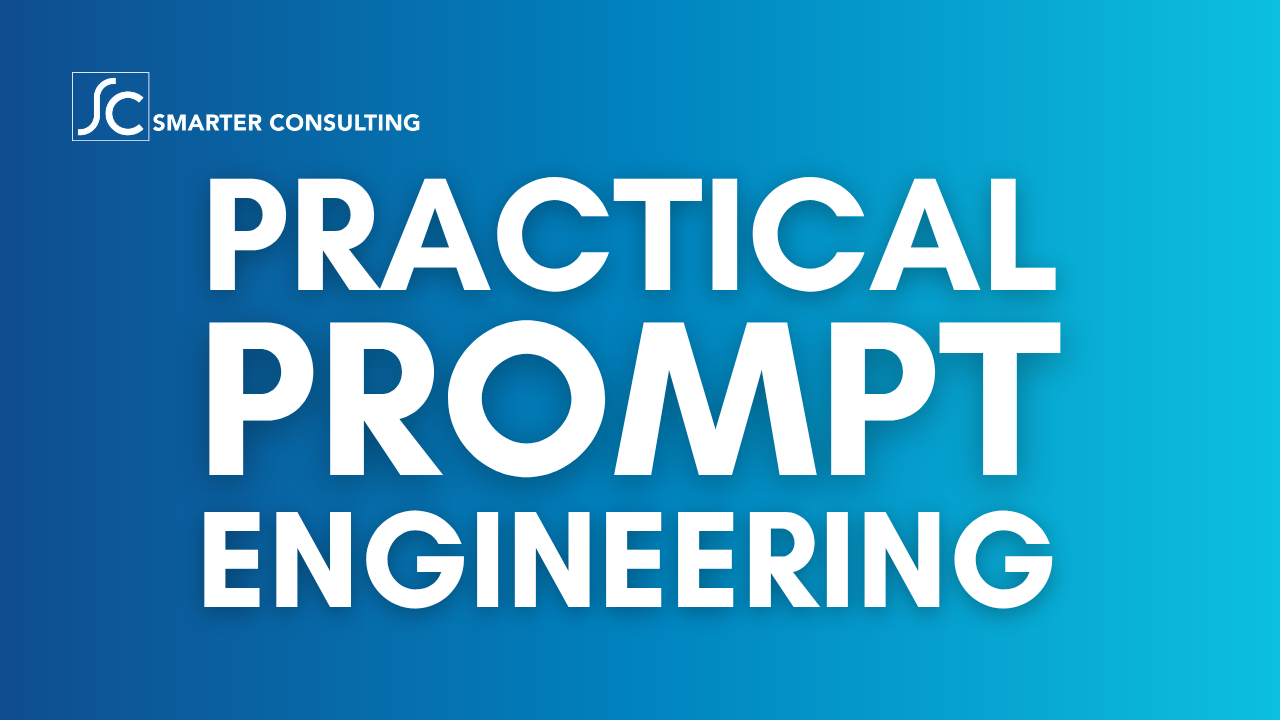Lessons from the TechCon 365 Dallas Keynote Panel
Yesterday’s keynote panel at TechCon365 Dallas, hosted at the Irving Convention Center here in Texas, delivered a rapid-fire, unfiltered deep dive into the realities of implementing AI inside enterprise ecosystems. As the moderator, I tried to keep the conversation flowing and dynamic, and, unsurprisingly, the panel didn’t sugarcoat the hard truths around governance, AI adoption, security, and the blurred lines between makers and developers. Participating in the panel were fellow Microsoft MVPs David Drever (@davidmdrever), Treb Gatte (@tgatte), Sue Hanley (@susanhanley), Wes Preston (@idubbs), Mark Rackley (@mrackley), Laura Rogers (@wonderlaura), and representing Microsoft, former MVP Fabian Williams (@fabianwilliams). The message was clear: if you’re not doing the AI groundwork, you’re setting yourself up to fail.
 Here’s what went down and why it matters.
Here’s what went down and why it matters.
1. Content Quality Is Still King — Especially for AI
The panel opened with a brutal reality check: “Crappy content in equals crappy AI out.” Whether it’s search or generative AI, the outcome depends entirely on the quality of your underlying data. And guess what? Most enterprises are sitting on mountains of unstructured data—emails, PDFs, Word docs—making up 72% of enterprise data, versus the 28% that’s neatly structured.
Manual cleanup? “That would take 15 million years,” one panelist quipped. Instead, AI has to help triage the mess—but it can’t do the job alone. Human oversight is critical.
Takeaway: Before plugging AI into your SharePoint libraries or enterprise systems, get your house in order. Prioritize content hygiene. Metadata matters. Version control isn’t optional. And governance isn’t a buzzword—it’s your foundation.
2. Governance Is Not Optional—It’s the Starting Line
The panel returned often to one central theme: governance precedes AI. Without proper access controls, labeling, and user training, AI can—and will—surface sensitive data users shouldn’t be seeing.
The cautionary tale? Interns using Copilot to help with budgeting could accidentally pull corporate financials… if Microsoft Information Protection (MIP) labels weren’t correctly applied.
What to do:
- Set label taxonomies (e.g., Confidential, Internal, Public)
- Implement default security labels
- Use DLP (Data Loss Prevention) policies to prevent accidental sharing
- Train users not just on how to use Copilot, but how to use it safely
Governance isn’t just about compliance—it’s also about user trust and keeping innovation from being stifled by fear or over-restriction.
3. “Shadow AI” Is Here—Control It or Chase It
Employees are already using tools like ChatGPT, Canva, Cursor, and others without waiting for IT’s blessing. That’s not hypothetical—it’s reality.
But rather than crack down with blanket bans, the panel advocated for a more strategic approach: consolidate the tools into Microsoft 365 and show users that Copilot can do the job just as well—sometimes better.
If your org already pays for Copilot, train users to use Copilot’s Create tab for AI-powered images and documents, or its prompt tools for planning, writing, and analysis. Make it the path of least resistance.
Bottom line: Control sprawl, don’t crush it. Innovation happens when people experiment. Guide it. Don’t squash it.
4. Blurred Roles, Shared Tools, Unified Missions
Microsoft is deliberately erasing the lines between pro devs and everyday users. Whether you’re building with Copilot Studio or Power Platform, the new reality is this:
- Developers, makers, and end users now share overlapping tools
- Low-code/no-code isn’t a fringe movement—it’s a strategic advantage
- AI enables non-devs to prototype and iterate, fast
Panelist Fabian Williams made it personal: “I can spin up a Node.js app now using AI—without knowing JavaScript. It’s not about code, it’s about outcomes.”
The emergence of “agent makers”—users who can build task-specific AI agents using prompt-based tools—means that innovation is no longer limited to dev teams. However, hand-off mechanisms still matter. Developers need to be able to extend, audit, and productionize these ideas when they scale.
5. Agent Sprawl: A Double-Edged Sword
With tools like Copilot Studio, it’s easier than ever to build agents. The problem? Now everyone is.
Organizations need a way to:
- Classify agent risk (e.g., Green = safe, Red = sensitive)
- Control distribution (who sees what, and when)
- Track usage and assign ownership
- Retire unused agents with automated policies
Panelists warned of “agent sprawl” echoing the early SharePoint days—“apps and flows all over the place.” The antidote isn’t banning tools. It’s controlled experimentation and clear governance paths.
In short: Let people build. But have visibility. Automate reviews. Apply default policies. And track adoption so you can double down on what works.
6. Culture, Not Just Controls, Shapes AI Success
Several panelists brought the conversation back to culture. Why do shadow tools pop up? Because people don’t feel heard. Or they don’t want to deal with bureaucracy.
Solution: Give users safe places to innovate. Set up AI sandboxes. Assign an innovation team. Treat security as a partner in experimentation—not a barrier.
As one panelist said, “Security should lead innovation. Create the garden, then let people play in it.”
7. Real People, Real Use Cases
To close the keynote, the panel shared personal ways AI is showing up in their lives outside work:
- Planning kid-friendly travel itineraries with dietary filters
- Using AI to remodel an office based on photos and style prompts
- Generating paint references or pulling recipes from Instagram cooking videos
- Asking ChatGPT: “If I eat less bacon, how much longer will I live?”
It was a light moment, but the underlying message was clear: AI is already here. It’s personal. It’s useful. And it’s rapidly evolving.
 Final Thoughts: AI Isn’t a Project, It’s a Strategy
Final Thoughts: AI Isn’t a Project, It’s a Strategy
If you walked away from the TechCon365 Dallas keynote thinking AI is about flipping a switch, you missed the point. AI success isn’t about tools. It’s about:
- Good data hygiene
- Strong governance
- Smart training
- Cross-functional collaboration
- Cultural alignment
You can’t bolt AI onto bad habits and expect magic. But if you build the foundation right, AI won’t just support your work—it will transform it.
“Copilot is Wave 1. Agents are Wave 2. Wave 3 is coming fast—swarms and workflows. Are you ready?”
Ready or not, it’s happening.
Don’t miss Microsoft Ignite next week, and online registration is FREE. Big announcements are coming. If you’re in the business of AI, governance, or digital productivity, this is the moment to tune in.





